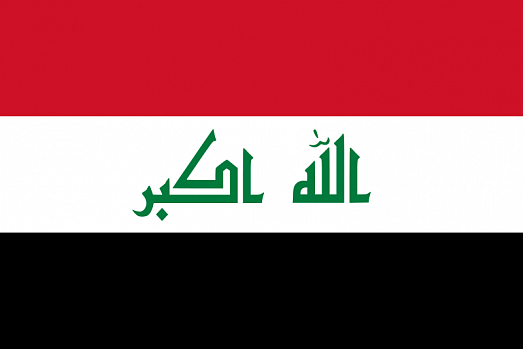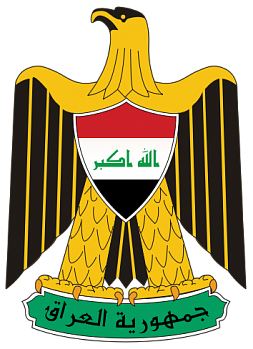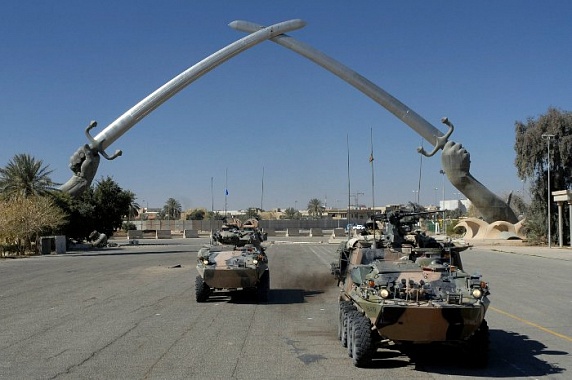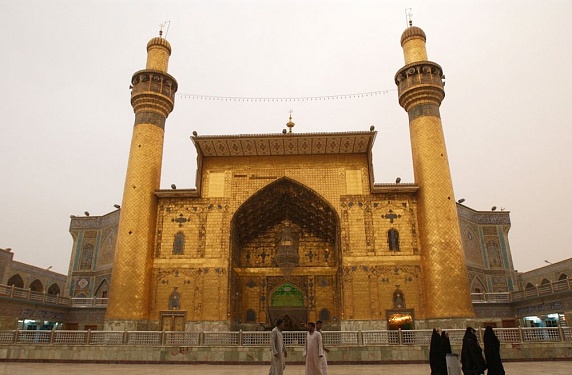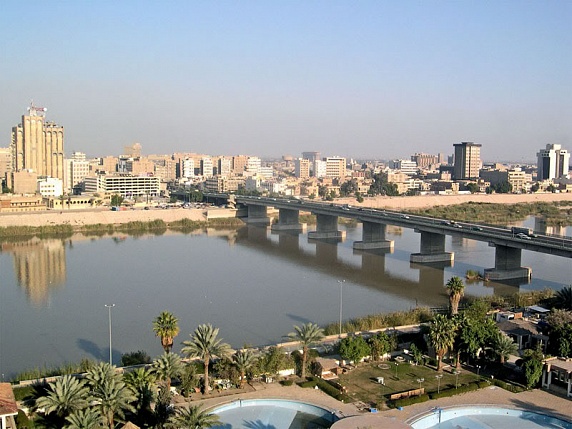 Республика Ирак
Республика Ирак
Foreign Minister Sergey Lavrov’s remarks at the 13th Middle East Conference of the Valdai Club, Moscow, February 13, 2024
Colleagues,
Thank you for the invitation. I have been a friend of the Valdai Club for a long time. I hope you find interesting what we have to say and how we describe our actions and plans. We always consider your questions and comments in our practical work.
In the past year, the Middle East has moved to the forefront of world politics. The events of October 7, 2023 stirred up the Middle East and the rest of the world. Russia immediately denounced the Hamas attack on Israeli civilians. I would like to emphasise that we condemn terrorism in all its forms. We also categorically reject attempts to use this attack to justify the collective punishment of the Palestinian people.
According to the latest estimates (there are no precise figures), almost 30,000 Palestinians have already been killed, half of them women and children. The number of wounded is double or triple that amount and counting, including the roughly 100 civilians killed and over 200 injured in the bombardment of Rafah.
We believe this conflict should have been nipped in the bud. As early as on October 15, 2023 (a week after the Hamas attack), we suggested adopting a resolution urging a ceasefire in the UN Security Council, even specifying a humanitarian ceasefire rather than a pause, but the Americans blocked it. Then the United Arab Emirates and other UN Security Council members tried to advance a similar resolution but to no avail. Only a toothless text calling for the afore-mentioned humanitarian pause was adopted. This didn’t resolve anything. Sadly, the UN Security Council adopted a much weaker stance on this issue than the General Assembly that adopted a resolution calling for a ceasefire.
Now our colleagues from Algeria that became a UN Security Council non-permanent member in January of this year also drafted a ceasefire resolution. This draft has not yet been submitted for voting in the Security Council but the Americans are doing all they can to prevent this.
We are seeing the consequences of the current escalation in other parts of the region as well, including the West Bank. Military operations are being carried out there as well and there are casualties. In addition to Palestinian territories, missile and bomb attacks are directed at Syria and Iraq. US bases in the SAR, Iraq and Jordan are subjected to shelling. Tensions have spiked in the Red Sea and around Yemen, which has become the latest target of unlawful, aggressive air strikes by the United States and Britain.
One gets a sense that the situation in this region has not yet reached its peak. We have repeatedly made it clear that the Palestinian issue has remained unresolved for many decades now, and the inability to create a full, viable state in accordance with UN resolutions has persisted for many decades now as well. This is a key factor that will constantly breed instability and violence in the Middle East.
I have discussed this with my Israeli counterparts many times. They dismissed this argument as an overstatement. The Americans and their allies had the same reaction. In the Middle East processes, the United States preferred to bank on its dominance in the region and is now working to remove Russia from a variety of international efforts aimed at creating proper conditions for restoring lasting peace and stability.
As you may be aware, they used a far-fetched pretext to block the quartet of international mediators on the Middle East settlement (Russia, the United States, the UN, and the EU). They use every avenue, including the current situation, to impose on the region their one-sided solutions that are out of touch with reality and leave out the peculiarities of the countries and the region itself. Everyone is clear about the outcome of this shortsighted and selfish policy pursued by the Americans and their allies. It is imperative to find a way out of this reality, which would prevent the catastrophe our American “colleagues” are pushing Palestine, Israel, and the Middle East into.
It is gratifying to know that our Arab friends are becoming increasingly aware of the importance of overcoming the current differences in order to deal with Middle East and North African issues by relying on their own resources and without external interference.
We welcome their push towards taking the future of the region into their own hands. This approach has already led to Saudi Arabia and Iran normalising relations with China’s mediation and bringing Syria back into the League of Arab States. Additionally, a dialogue is underway on normalising relations between Syria and Türkiye with the assistance of Russia and Iran. Regional powers have proven their ability to act effectively when left to their own devices.
Tensions in Gaza are running unprecedentedly high, which is the ultimate challenge that calls for efforts not just for a ceasefire, but to create reliable and legally binding terms to ensure the creation of a Palestinian state as well. I have covered the efforts to establish a ceasefire as our priority goal in my earlier remarks.
Meanwhile, we continue to make arrangements to evacuate Russian citizens and nationals of other countries from the area of hostilities. To date, we have evacuated about 1,200 of our compatriots, their family members, and foreign citizens. We have brought in 500 tonnes of humanitarian aid, and we will continue these efforts.
Considering the uncompromising stance of the Israeli leadership with regard to continuing the military operation in Gaza (it now includes Rafah as well), we do not see any chance for imminent stabilisation of the situation. Efforts to establish a ceasefire must go hand in hand with creating proper conditions for a reliable and lasting settlement.
On January 23, 2024, the UN Security Council met to consider the Palestinian issue. In terms of practical steps, we brought to the council’s attention our long-standing initiative to hold consultations with key countries in the region to harmonise their approaches in support of Palestinian statehood. Following that, we propose holding an inter-Palestinian meeting involving all leading Palestinian factions, to overcome the internal rift.
This is a long-standing problem. On several occasions, the Russian Federation has held meetings of Palestinian movements and parties, with our friend and active Valdai Club member Vitaly Naumkin putting forward an initiative, among others. The Palestinian representatives met with our experts and Russian Foreign Ministry officials. No agreement was reached on restoring unity, although we always underscored that Palestinian unity was something that depended on the Palestinians themselves and their friends among external players, and no one else.
To eliminate the well-known nuances in the approaches of external players as well as those inside the Palestinian territories, we proposed this kind of unification, for all external players to send a unified signal to the Palestinians on how to restore their unity. Now we are mostly hearing “prescriptions” proposed by the United States and its British associates. These prescriptions are not aimed at fostering progress towards a Palestinian state, but at putting Gaza under control so it is tractable for the Israeli authorities.
I understand the initiatives and goals proclaimed by Israeli Prime Minister Benjamin Netanyahu. They are fundamentally different from the demands set forth in the decisions of the international community, primarily the UN Security Council, which are shared by most countries and should lead to the establishment of a Palestinian state. We will continue this work with our partners. We look forward to holding another inter-Palestinian meeting in the foreseeable future, including Mr Naumkin and his colleagues, with support from Palestinians themselves and their Arab friends.
There are still other sore points in the region. The Astana format continues working on the Syrian Arab Republic. In late January, the 21st meeting took place in Astana. The participants reaffirmed joint actions by the Astana Three (Russia, Iran and Türkiye with the assistance of the observer countries, including Iraq, Lebanon and Jordan. We appreciate the support that their status provides for our common efforts.
I have already mentioned the format that helps normalise relations between Damascus and Ankara. I am referring to Syria, Türkiye, Russia and Iran. We are also working with the Arab countries. Now that the SAR has returned to the Arab League, we are encouraging them to more actively support the restoration of that country. We are also discussing these issues with the Iranians and our friends from the People’s Republic of China.
The Constitutional Committee is now on pause largely because Geneva has undermined its reputation as a neutral platform. I spoke with Swiss Foreign Minister Ignazio Cassis on the sidelines of the UN Security Council session on Palestine in New York. I explained to him why we could no longer view Geneva as a truly neutral platform that could facilitate meetings on settling differences.
Bern has taken an overtly anti-Russia position. It is enough to say that they recently approved a foreign policy concept saying that Switzerland is striving to enhance European security not with Russia but against it. This is written in their official documents. What kind of mediation can they provide? Now they are trying to impose on others their mediation on Ukraine but nothing will come of it. This player cannot be trusted.
I hope we will soon determine a new place for hosting a Constitutional Committee meeting, primarily with the consent of the Syrian participants in the talks - the government and opposition delegations. Resumption of this process in an Arab country with the support of other countries of the region would be the best option.
Until recently, the situation in Yemen looked optimistic because of Saudi contacts with Ansar Allah with the Sultanate of Oman’s mediation. As I see it, a comprehensive settlement framework was agreed upon. However, an armed adventure by the US and its allies in the Red Sea may ruin all these achievements and prospects. Instead of joining the collective de-escalation efforts, Washington and London have started bombing Yemen. Once again, they opted for a neocolonialist way of responding to events with armed force.
We staunchly advocate security for merchant navigation and global transport routes, including in the Red Sea. However, we cannot accept current actions by the US and the UK that are launching missile and bomb strikes at the territory of a sovereign state. Events have proved more than once that it is impossible to achieve a military victory in this way. That said, the Americans have always succeeded in expanding the zone of hostilities and intensifying the fighting wherever they interfered in a conflict, be it Iraq, Libya or Syria.
We will continue working constructively with all countries of the region and all those in other parts of the world, which are sincerely interested and can help. We continue cooperating with our partners. We are recording rapid growth in trade, investment cooperation, interaction in OPEC+ and the Gas Exporting Countries Forum. This useful potential is strengthening the material foundation of our cooperation in the international arena.
On December 20, 2023, we held a sixth session of the Russian-Arab Cooperation Forum at Foreign Minister Level in Marrakesh. We compared Russian and Arab League approaches to regional and international issues and issued a special statement. In July 2023, Moscow hosted the sixth round of the strategic dialogue between Russia and the Gulf Cooperation Council countries.
We would like to thank again our friends, including Academician Vitaly Naumkin for organising expert meetings with representatives of relevant countries at the RAS Institute of Oriental Studies.
We will continue working intensively on the Middle East track. Top-level agreements are setting the tune and pace for our efforts. President of Russia Vladimir Putin is always in touch with his Arab colleagues during reciprocal visits and regular telephone conversations with Arab and Israeli leaders.
I am confident that as always, discussions at your platform will produce much needed recommendations that will be heard and applied in practice.


